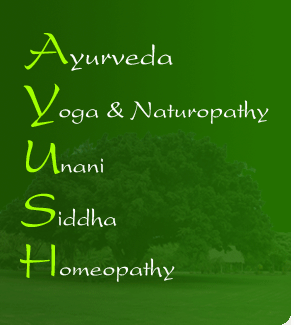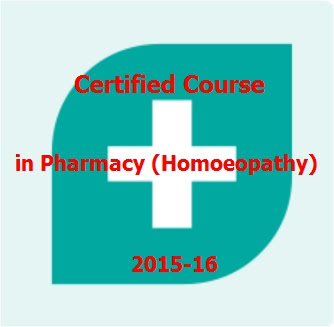
AYUSH: The six systems
- Ayurveda: Ayurveda (“science if life”) is a system of Indian traditional medicine with roots in the ancient Hindu texts, particularly the Atharva Veda, and later the Charaka Samhita and the Sushruta Samhita.( Sushrutha- the father of surgery) Ayurveda believes that all living beings comprise five elements, whose permutations and combinations determine three types of humours or the Doshas— Vata, Pitta and Kapha. A key principle of Ayurveda is balance; an imbalance of the doshas is believed to result in disease. Treatments follow one of two possible approaches: Vipreeta, in which medicines and diet are meant to “antagonise” the disease, and Vipreetarthkari, in which medicines, diet and activity are targeted to exert effects similar to the disease process( similar to homeopathy Principle). Most medicines and treatments are derived from herbs.
- Yoga :Yoga (“to join” or “to unite”) is a physical and spiritual discipline that has its roots in the Indian sub-continent and has been recorded in the Upanishads and later in the Yoga Sutras of Patanjali. The practice of yoga is meant to lead to a stage of higher consciousness and is also described as “soul therapy”. Japa Yoga, Karma Yoga, Gyana Yoga, Bhakti Yoga are spiritual, while Raja Yoga, more popularly known as Ashtanga Yoga, involves eight steps, including the pranayama or breathing exercises. Some forms of yoga and their modern practice focus mostly on asanas. Practitioners say yoga can cure diseases, and the government runs the Central Council for Research in Yoga and Naturopathy. Early indications from an on-going five-year study at Harvard indicate that yoga helps with chronic stress.No medicines are used in yoga.
- Homeopathy:
Homeopathy is of European origin and dates back to the end of the 18th century, to the work of German physician Samuel Hahnemann. Homeopathy is premised on the belief that highly diluting a substance in alcohol or distilled water increases its potency, a principle that is almost universally disputed in scientific communities. Remedies involve dilutions on a logarithmic scale, and grinding of insoluble compounds with a mortar and pestle according to prescribed motions.
- Unani Introduced by Arabs and Persians to India in the 12th century and with a rich literature, Unani medicine remains popular in parts of South and Central Asia. Freedom fighter and physician Hakim Ajmal Khan was among its champions in India. Unani shares many common principles with ayurveda, including the belief in the four humours. The human body is believed to be made up of elements whose permutations and combinations determine temperament. Medicines have herbal, animal and mineral origins.
- Siddha An ancient form of traditional medicine, Siddha originated in Tamil Nadu through the work of “siddhars” or scientist-saints. Siddha shared many principles with Ayurveda, including the belief in humours, elements and imbalance.Diagnosis involves a key checklist of eight signs and symptoms. Drugs are herb-based and treatments are both internal and external. Siddha’s chemistry around its drugs is complex. Research, teaching and practice is largely restricted to Tamil Nadu.
- Naturopathy: Naturopathy is an umbrella term for a range of alternative treatments derived from natural products. Naturopaths believe that, except for accidents, the cause of all disease is the accumulation of “morbid matter” in the body, and treatment means the removal of this matter. Therapies include special diets, mud packs, acupuncture, acupressure and magnet therapy. Prayer is an important part of treatment. Naturopathy schools exist across the world.
source:thehindu.com; biospectrumasia.com





 [28/08/2015]
[28/08/2015]